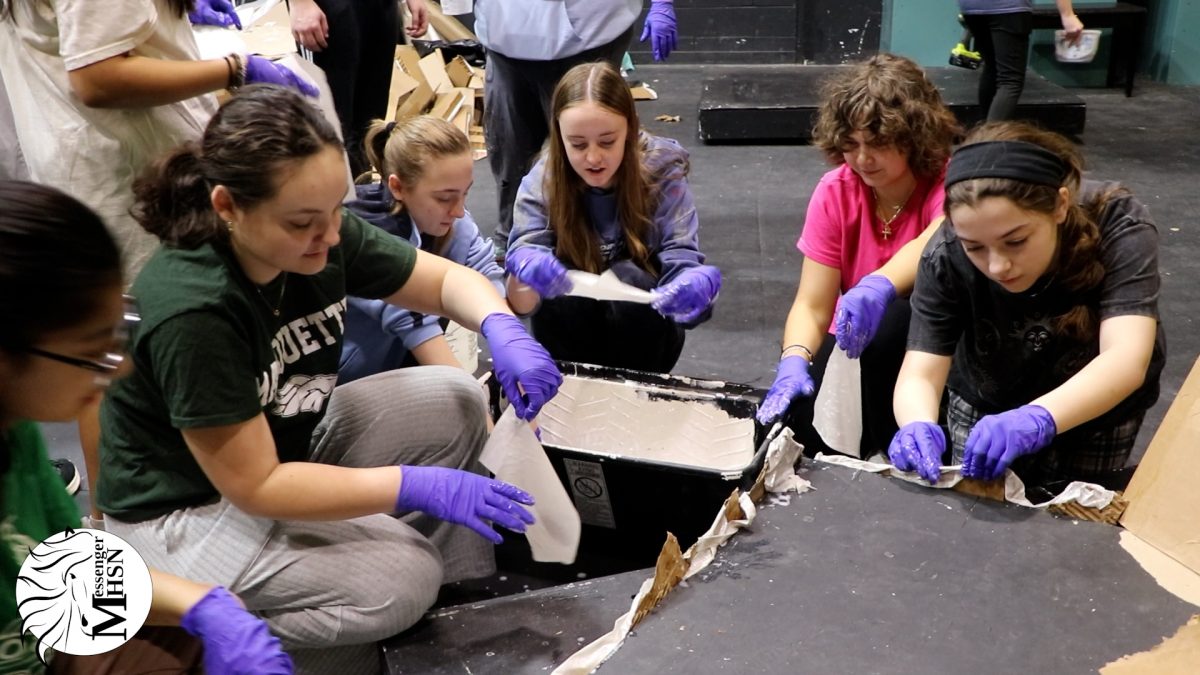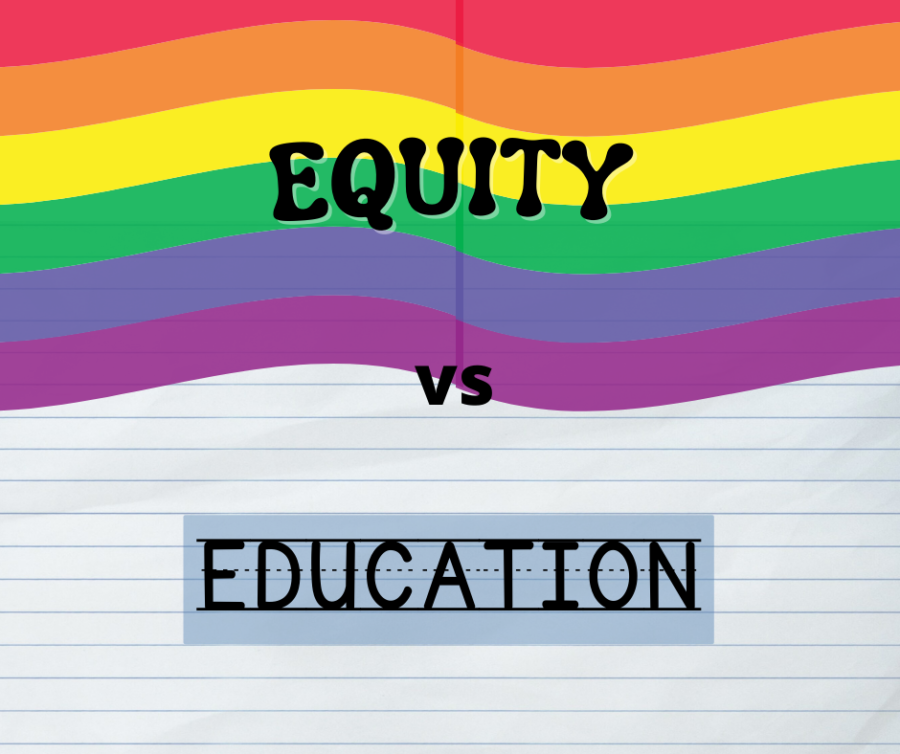Across the U.S., the rights of LGBTQ+ students are facing unrelenting discrimination and restrictions, continuing to fuel debates on everything from life-saving healthcare to respecting students’ identities.
In Texas, Republican Governor Greg Abbott ordered the Texas Department of Family and Protective Services (DFPS) to investigate parents for abuse who “provide their transgender children with gender-affirming medical treatments.” In March, this state investigation was blocked following a lawsuit by the American Civil Liberties Union (ACLU), but serves as a prime example of state governments targeting transgender students.
Meanwhile in Florida, the “Don’t Say Gay Bill” was signed into law by Governor Ron DeSantis on March 28. The name came from a section within the legislation restricting lessons on gender and sexuality in schools, and can remove books with LGBTQ+ representation from classrooms and libraries along with banning discussions concerning diverse families of both students and staff. The law also outlines requirements for schools on notifying parents if a child seeks mental health services from their school, as reported by the New York Times, which could lead to a student being outed or put in an unsupportive and possibly unsafe environment.
While these conservative-led actions are only the tip of the iceberg of policies against transgender students and the protections of LGBTQ+ individuals in school communities, bills and state actions such as these can seem far away from our bubble of Northern Virginia. However, similar conversations about rights and affirming students’ identities are also taking place in our backyard and even our district.
In Hanover County, Va., the school board voted to work with the Alliance Defending Freedom (ADF), to review the district’s equity policy, which involves the treatment of LGBTQ+ students. ADF is an “extremist conservative religious organization, labeled as an anti-LGBTQ+ hate group by the Southern Poverty Law Center since 2016,” according to the ACLU of Virginia. While organizations such as the ACLU are currently working to protect the rights of students, the rights of LGBTQ+ students are once again being put on the line by local governments.
In Loudoun County, the biggest focus has been on banning diverse books and arguments over equity and equity training.
In January, LCPS removed “Gender Queer: A Memoir” by Maia Kobabe from school libraries after facing complaints about “descriptions of pedophilia,” according to an interview on the book with Kobabe by Northern Virginia Magazine. The article also noted that Fairfax County faced similar pushback from parents but didn’t find any offensive material and kept the book in school libraries. I have read the book, and couldn’t find anything that was upsetting or obscene within the honest descriptions of exploring gender identity that the book conveyed.
LCPS school board meetings have featured a great display of debates and fights against diverse content and the prioritization of LGBTQ+ students’ rights and protections. While watching the March 8 school board meeting, I became increasingly aware of the number of parents making comments against equity training and its effect on education. Numerous community members argued that a recent equity training, with a focus on topics including gender identity, restricts teachers’ ability to best teach and support their students. Some parents even argued that this training—which was part of the required professional development on March 7—took time away from teachers who could have been helping their kids with school, or that the transition back from virtual learning would have been, and would continue to be, easier if there wasn’t as big a focus on equity and these trainings.
During the school board meeting on March 8, community members such as Cheryl Onderchair questioned the purpose of the training and the priorities of the school board. “Did the LCPS staff enjoy Equity in the Center Professional Development Training yesterday talking about gender ideology and their white privilege? Why are these your priorities?” Onderchain said at the beginning of her one minute of public comment time. “After unnecessarily keeping schools closed for more than a year, have you even considered training on how to catch kids up from not learning anything from your failed experiment called distance learning? In fact, when my daughter goes to her math teacher for help because she is lost, she is told to ‘go to math lab.’”
Onderchain continued by making a point that the lack of assistance being offered academically is due to these trainings taking place. “I still haven’t seen any tutoring or remediation being offered at the high school level. Please set the gender ideology and equity projects aside and concentrate on educating students. You know, things like math, writing, history, science, civics, because that’s why you all are here.”
From the perspective of a white non-binary student, I haven’t experienced any action from a teacher that has limited my ability to learn or get extra help in a class. Instead, knowing that my teachers are being trained on the importance of using and respecting pronouns and are more knowledgeable on diverse identities not only makes me feel more comfortable to share my pronouns and be myself around my teachers and peers, but also enhances my ability to learn in a safe, supportive environment.
However, boasted by the controversial trainings, the term “equity” has become a buzzword in our community, as it is not widely understood how the county is working to improve equity or what is actually being taught in the equity training administered by the county. This lack of transparency creates questions on how these trainings are being incorporated into our classrooms and how they are making a difference in fostering a better learning environment.
According to the Virginia Department of Education Office of Equity and Community Engagement as cited in the 2021 LCPS Equity Report, “‘Education Equity is achieved when we eliminate the predictability of student outcomes based on race, gender, zip code, ability, socioeconomic status, or languages spoken at home.” Unlike equality, equity adapts to the needs of a specific person, and uses additional tools and support to ensure access to opportunities for all students.
To try and find out more about the content and specific resources being employed in these equity trainings, I initially reached out to my school’s equity leads, Roxana Cromwell and Cassandra Dean, asking for any information or resources that I could be given access to for this article, and was told by Special Education teacher Dean that training materials are provided by the Equity Office for LCPS and couldn’t be given access. I was told to contact Wezi Thindwa, the Specialist for Culturally Responsive Instruction for LCPS.
After emailing Thindwa, another Culturally Responsive Instruction Supervisor for LCPS, Cynthia Lewis responded saying that these resources are for staff and couldn’t be shared, but directed me to the school district’s Culturally Responsive Framework.
LCPS outlines the district’s commitment to equity in the Culturally Responsive Framework, which was developed “to create and guide support of student-centered learning environments with a critical focus on culturally and linguistically diverse students that have been marginalized by inequitable systems.” The framework also intends to help teachers, administration, and counselors to support students of diverse racial, religious, ethnic, gender identities, and abilities.
The Culturally Responsive Framework breaks down goals and practices for LCPS employees to create this environment and promote equity in schools. The Framework document specifically states that objectives such as for teachers to create a “welcoming, inclusive and affirming environment” by working to “identify and disrupt implicit bias in the school and community environment” and “facilitate and “engage in critical conversations.”
In her email, Lewis also said “With respect to gender identity, LCPS is committed to a welcoming, affirming, and inclusive environment and we align our professional development to this commitment.”
However, no clear information on what specifically the professional development trainings are helping teachers learn was offered to me from the LCPS Equity Leads I contacted, nor has it been provided to the greater school community. Although the coordinators and leads are responsive and encouraging, the lack of public access to the trainings is frustrating and potentially harmful to the community dialogue at large. There are a lack of direct examples of implementing such skills and goals into the class setting, and how these objectives from the Culturally Responsive Framework have helped improve equity in schools.
While working to ensure deeper learning and understanding of diverse topics in classrooms is incredibly important, the lack of transparency surrounding what is actually included in such trainings that are supposed to be promoting equity isn’t a good look.
If the county actually wants to promote equity in schools and support the teachers, administrators, counselors, social workers, and parents who want the best possible educational environment for the students, then the community needs to see proof that LCPS is not remaining silent. As Dean said in her email, “it is imperative that we provide services that encompass academic opportunities that will enable our students to have cause and effect on the importance of embracing our differences.”
Conversations and steps to make school more equitable and more inclusive can’t come from a checklist off a document; instead, teachers, staff, and parents should be able to go to trainings to discuss equity issues that come up in real life and find realistic solutions to approaching mental health concerns with students or the use of language in the hallways. These topics must become an open conversation with the community—a united effort for equity.
If LCPS instead continues to ban books featuring LGBTQ+ voices without listening to the students directly affected and refusing to speak up to community members who believe that training on gender identity is a disruption to learning, then the Framework and this idea of equity in schools is a moot point.
In order for there to be quality education in schools, LCPS needs to practice what it preaches. Not only does there need to be a goal of achieving and maintaining equity for all students, but the community needs to understand what changes are being implemented. Parents and students can easily access the curriculum for their classes through syllabi, and also can find online resources for school district policies on COVID-19 and information on every class and standardized test that a student may encounter. Information on the equity training that the county believes is making a positive impact in our schools should be accessible and proudly displayed with separate resources for all community members, magnifying the core value of inclusivity and respect.
Information on the equity training that the county believes is making a positive impact in our schools should be accessible and proudly displayed with separate resources for all community members, magnifying the core value of inclusivity and respect.
Educating the community and having discussions on topics from implicit bias with regards to race, to respecting gender identities that are valid and exist outside of the binary, are beneficial for all students. LCPS has seemingly ignored community reactions over recent equity trainings after the implementation of Policy 8040, and the county’s lack of transparency on their staff trainings isn’t defending their golden principle of equity. It is time for LCPS to proudly declare that respecting and appreciating the diversity of all their students’ identities is a crucial component of education.
This story was originally published on The Blaze on April 29, 2022.

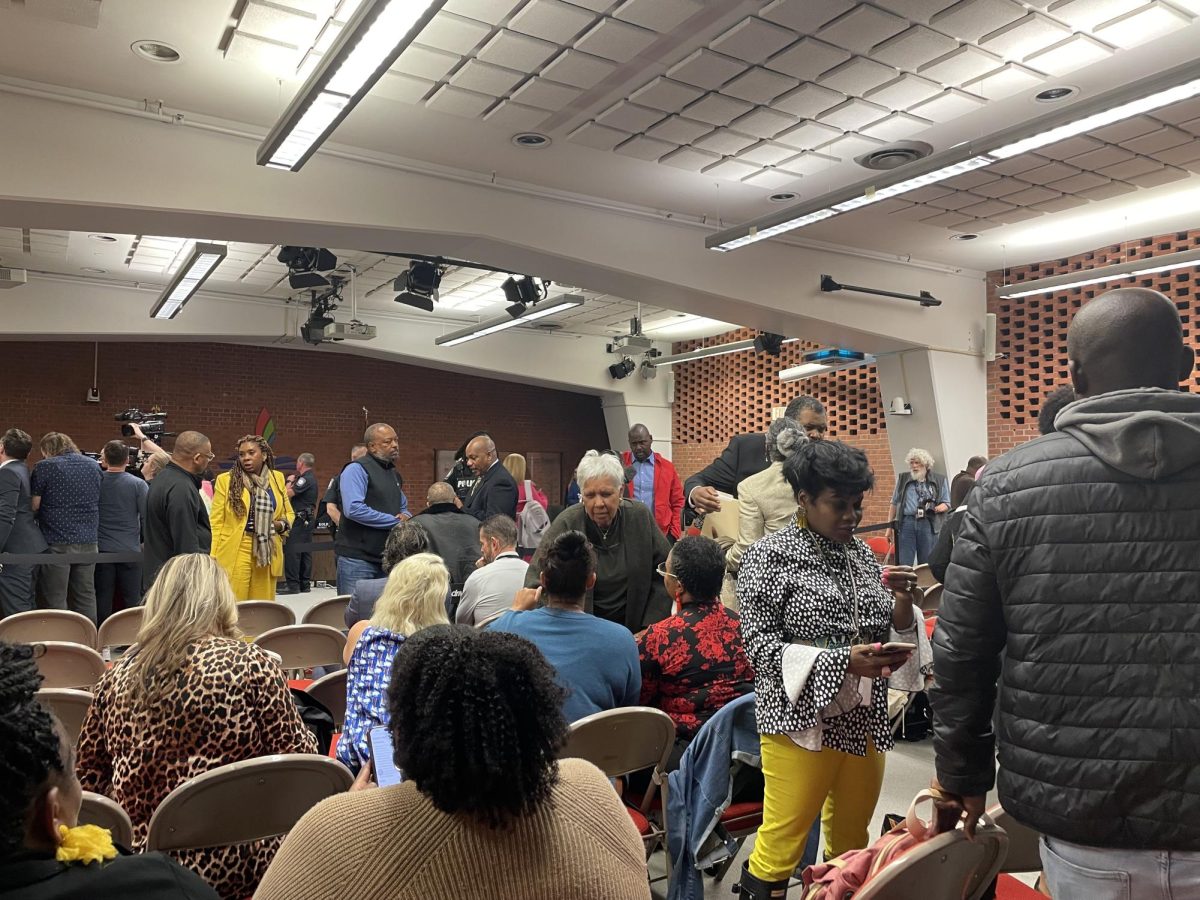



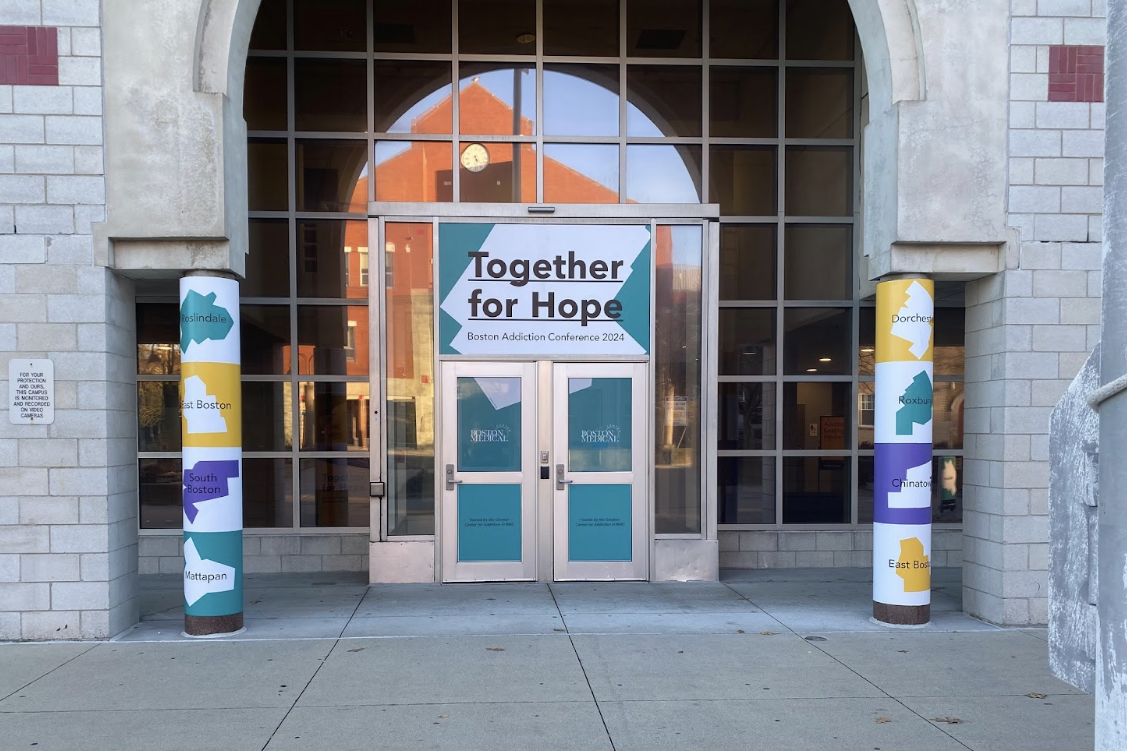
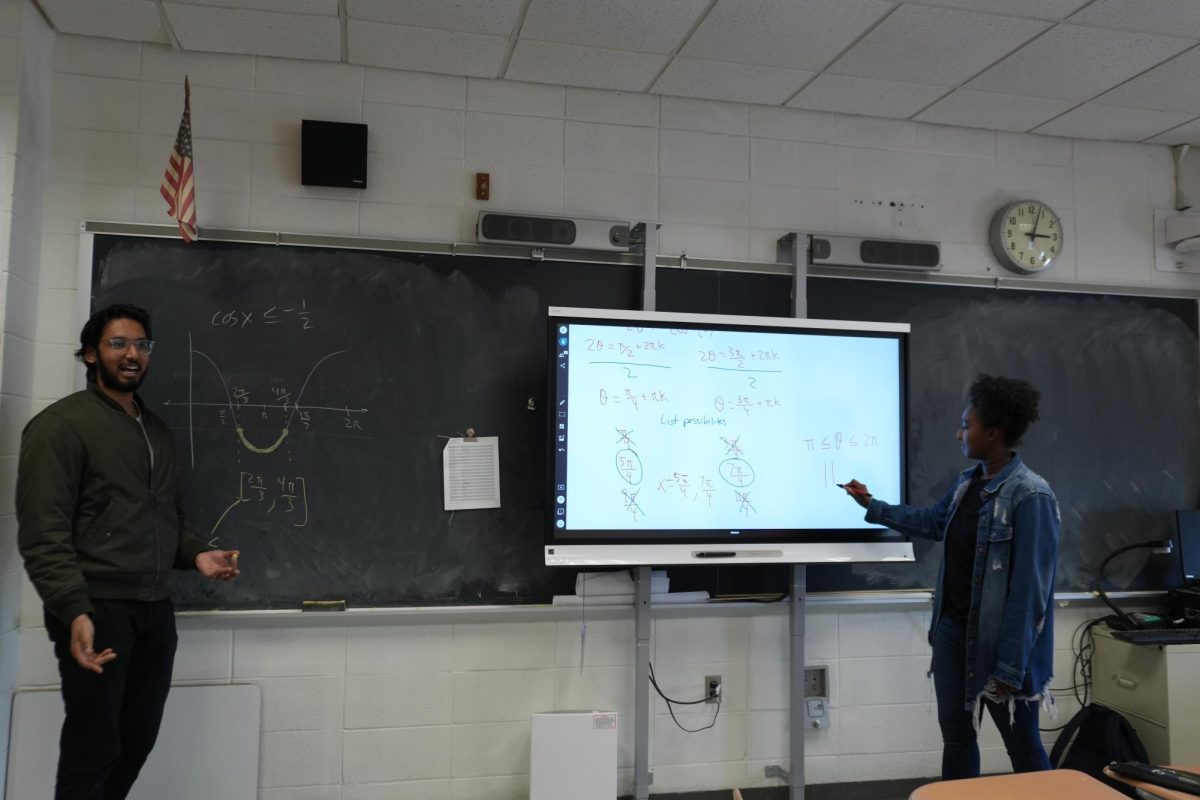

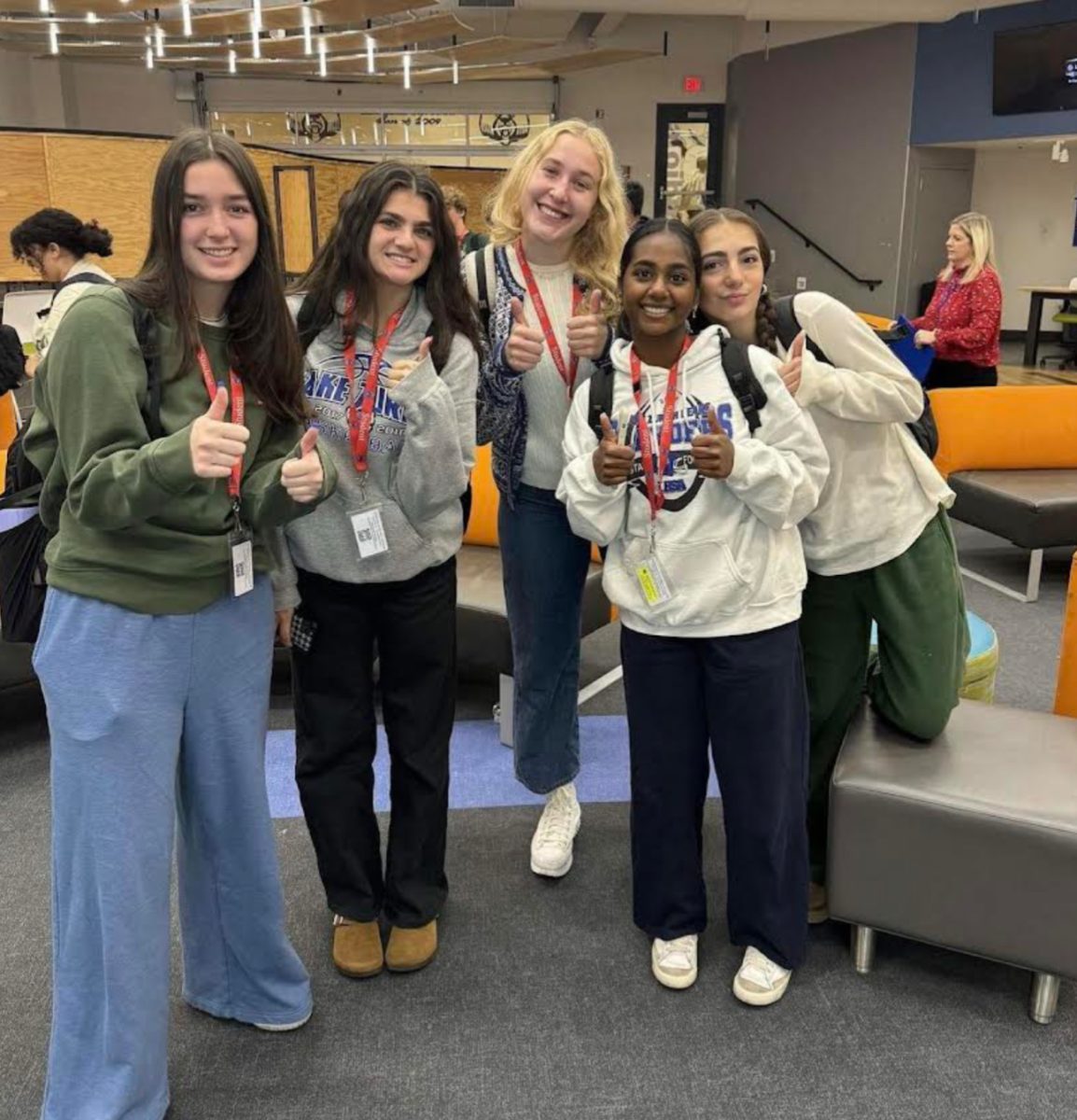
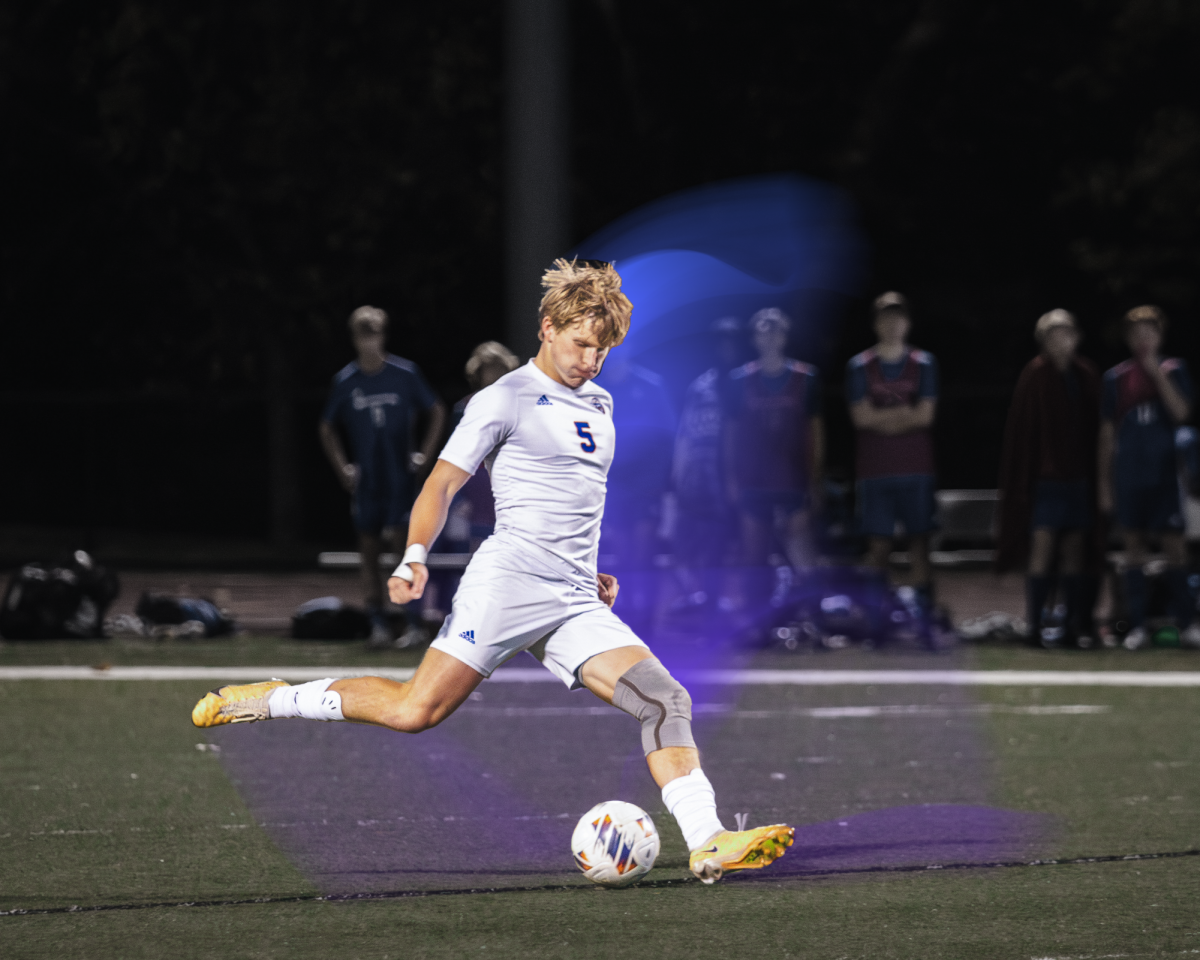
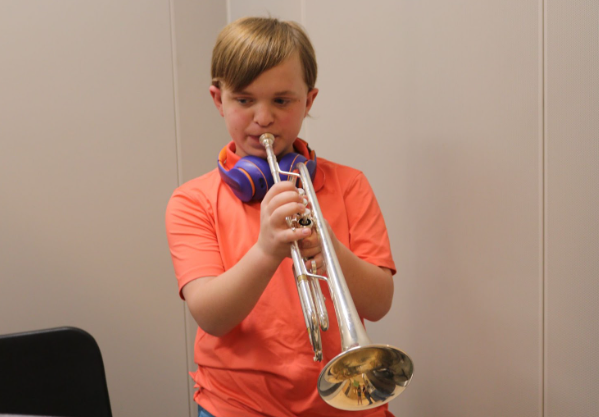
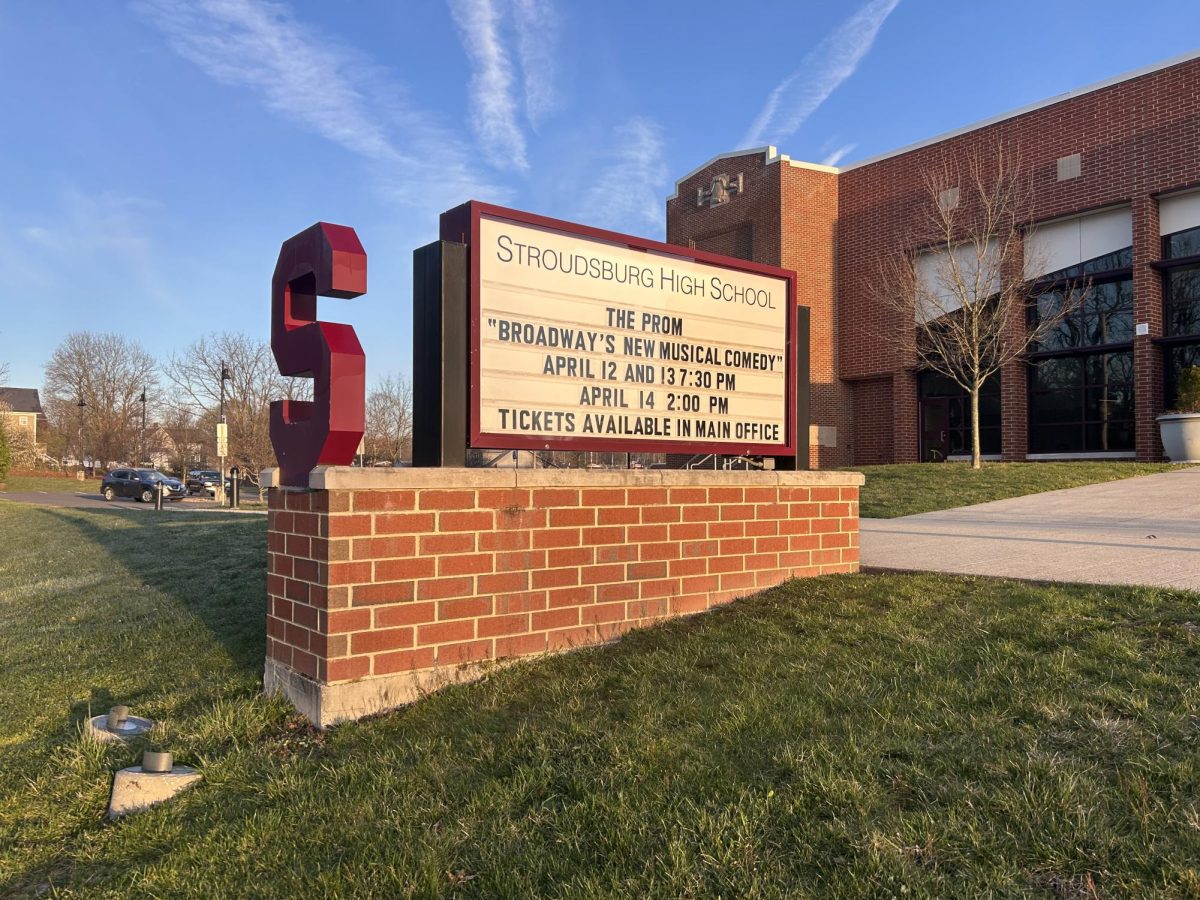






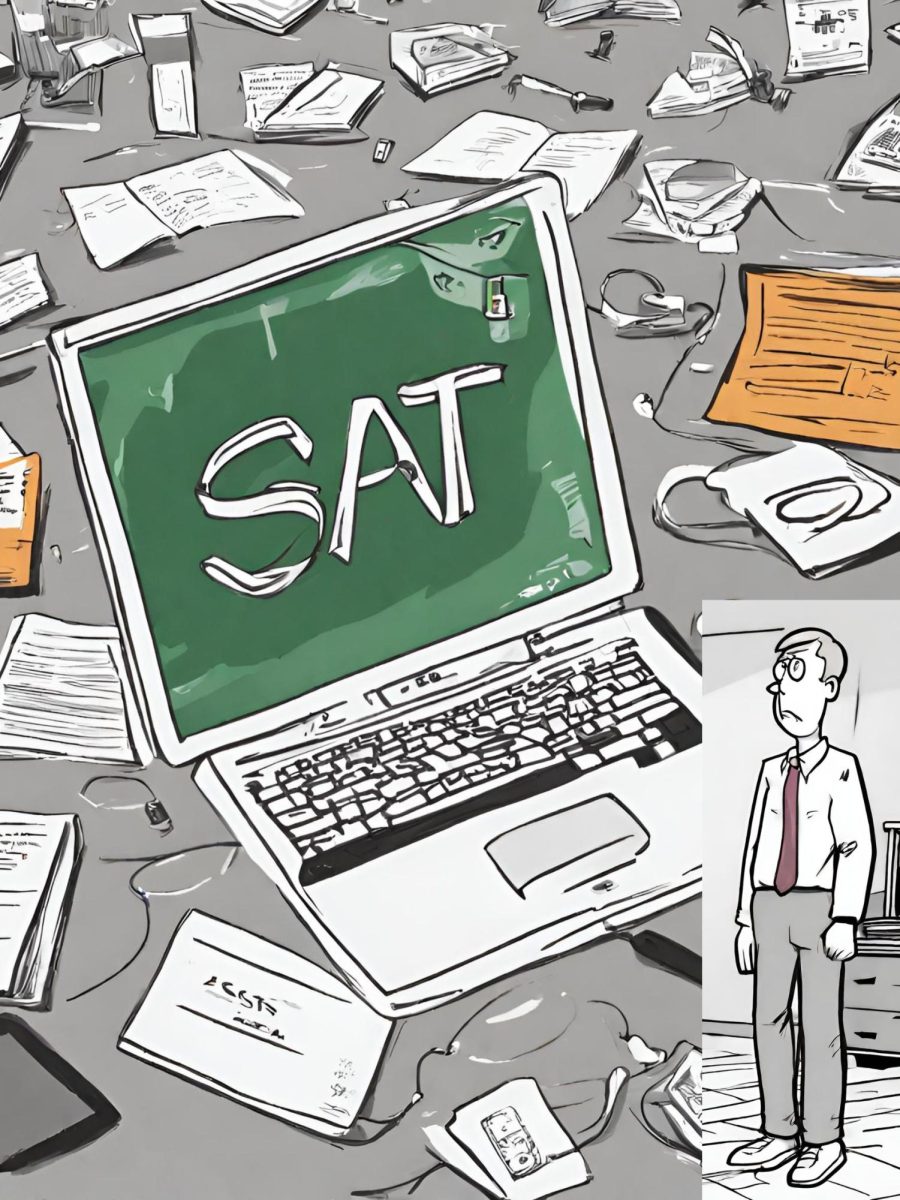







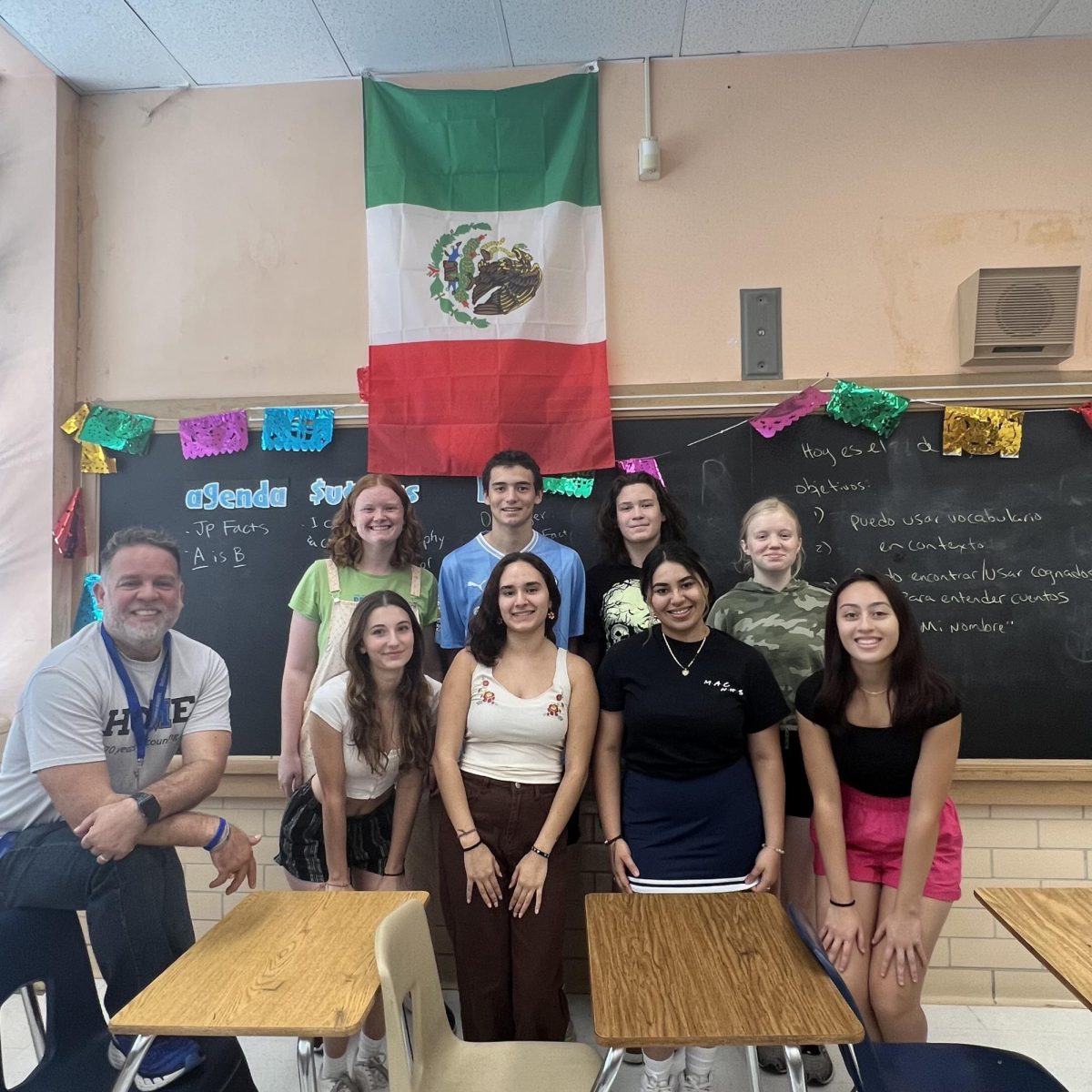

![IN THE SPOTLIGHT: Junior Zalie Mann performs “I Love to Cry at Weddings,” an ensemble piece from the fall musical Sweet Charity, to prospective students during the Fine Arts Showcase on Wednesday, Nov. 8. The showcase is a compilation of performances and demonstrations from each fine arts strand offered at McCallum. This show is put on so that prospective students can see if they are interested in joining an academy or major.
Sweet Charity originally ran the weekends of Sept. 28 and Oct. 8, but made a comeback for the Fine Arts Showcase.
“[Being at the front in the spotlight] is my favorite part of the whole dance, so I was super happy to be on stage performing and smiling at the audience,” Mann said.
Mann performed in both the musical theatre performance and dance excerpt “Ethereal,” a contemporary piece choreographed by the new dance director Terrance Carson, in the showcase. With also being a dance ambassador, Mann got to talk about what MAC dance is, her experience and answer any questions the aspiring arts majors and their parents may have.
Caption by Maya Tackett.](https://bestofsno.com/wp-content/uploads/2024/02/53321803427_47cd17fe70_o-1-1200x800.jpg)
![SPREADING THE JOY: Sophomore Chim Becker poses with sophomores Cozbi Sims and Lou Davidson while manning a table at the Hispanic Heritage treat day during lunch of Sept 28. Becker is a part of the students of color alliance, who put together the activity to raise money for their club.
“It [the stand] was really fun because McCallum has a lot of latino kids,” Becker said. “And I think it was nice that I could share the stuff that I usually just have at home with people who have never tried it before.”
Becker recognizes the importance of celebrating Hispanic heritage at Mac.
“I think its important to celebrate,” Becker said. “Because our culture is awesome and super cool, and everybody should be able to learn about other cultures of the world.”
Caption by JoJo Barnard.](https://bestofsno.com/wp-content/uploads/2024/01/53221601352_4127a81c41_o-1200x675.jpg)



